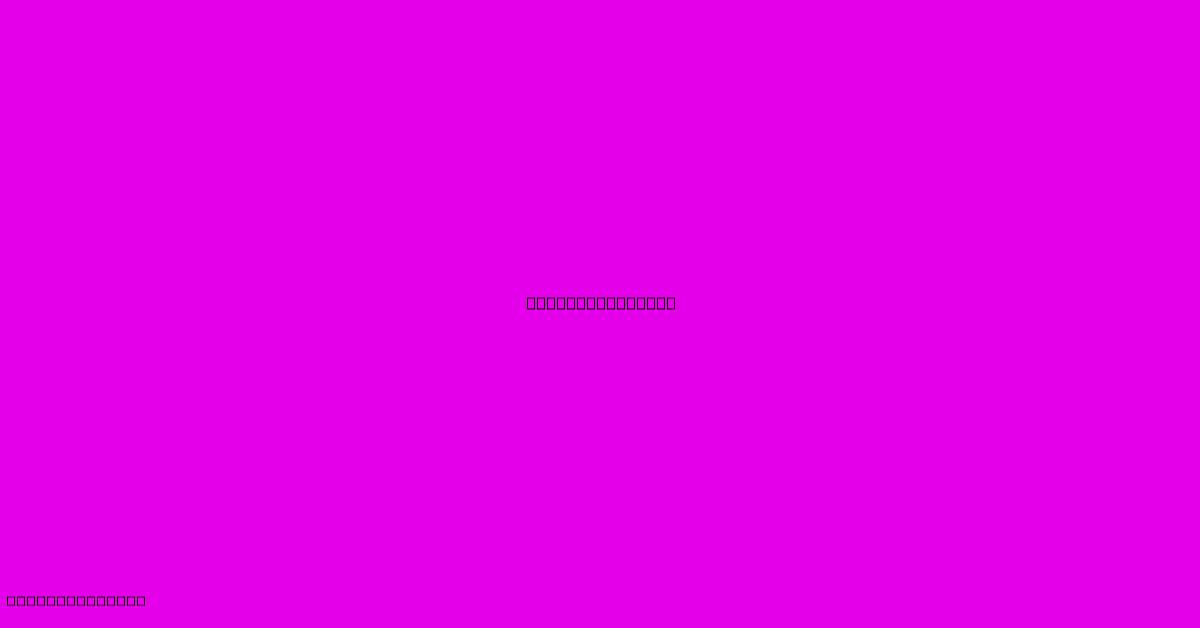Rx Technologies

Discover more detailed and exciting information on our website. Click the link below to start your adventure: Visit Best Website mr.cleine.com. Don't miss out!
Table of Contents
Rx Technologies: Revolutionizing Healthcare Through Data-Driven Insights
Rx Technologies is a rapidly evolving field encompassing the application of various technologies to improve pharmaceutical processes, healthcare delivery, and patient outcomes. This includes everything from drug discovery and development to medication management and patient monitoring. It's a dynamic sector driven by advancements in big data, artificial intelligence (AI), and the Internet of Things (IoT). This article will explore the key components and transformative impact of Rx Technologies.
Key Areas of Rx Technology Innovation:
1. Drug Discovery and Development:
- AI-powered drug design: Machine learning algorithms analyze vast datasets of molecular structures and biological activity to predict the efficacy and safety of potential drug candidates, significantly accelerating the drug discovery process and reducing costs.
- High-throughput screening: Automated systems rapidly screen thousands of compounds to identify promising drug leads, increasing efficiency and accelerating the timeline for new drug approvals.
- Personalized medicine: Rx technologies enable the development of tailored treatments based on an individual's genetic makeup, lifestyle, and medical history, leading to more effective and safer therapies.
2. Medication Management:
- Smart inhalers and pill dispensers: These devices track medication adherence, providing valuable data for healthcare providers to improve patient outcomes and identify potential issues early on.
- Electronic health records (EHRs): EHRs facilitate seamless information sharing among healthcare professionals, reducing medication errors and improving the overall quality of care.
- Pharmacovigilance: Advanced data analytics identify and monitor adverse drug reactions, ensuring patient safety and enabling proactive adjustments to treatment plans.
3. Patient Monitoring and Telehealth:
- Wearable sensors: These devices continuously monitor vital signs, activity levels, and other health parameters, providing real-time data to healthcare professionals for proactive intervention.
- Remote patient monitoring (RPM): RPM uses technology to monitor patients remotely, reducing hospital readmissions and improving patient engagement.
- Telemedicine platforms: Telemedicine platforms allow for virtual consultations, reducing the need for in-person visits and improving access to care, especially in remote areas.
4. Supply Chain Management:
- Blockchain technology: Blockchain enhances the security and transparency of pharmaceutical supply chains, reducing the risk of counterfeit drugs and ensuring product authenticity.
- IoT sensors: IoT sensors monitor temperature and humidity during drug transportation and storage, ensuring product quality and preventing spoilage.
- AI-powered predictive analytics: AI algorithms predict potential supply chain disruptions, allowing for proactive measures to maintain uninterrupted drug supply.
The Transformative Impact of Rx Technologies:
Rx technologies are transforming the healthcare landscape in several significant ways:
- Improved patient outcomes: Personalized medicine, proactive monitoring, and improved medication adherence lead to better health outcomes.
- Increased efficiency and reduced costs: Automation and data analytics streamline processes, reducing costs and accelerating drug development.
- Enhanced patient engagement: Wearable devices and telehealth platforms empower patients to actively participate in their healthcare management.
- Improved drug safety: Pharmacovigilance and secure supply chains minimize the risk of adverse drug events and counterfeit medications.
Challenges and Future Directions:
While Rx Technologies hold immense potential, several challenges remain:
- Data security and privacy: Protecting sensitive patient data is crucial. Robust security measures and adherence to privacy regulations are essential.
- Regulatory hurdles: Navigating the regulatory landscape for new technologies can be complex and time-consuming.
- Interoperability: Ensuring seamless data exchange between different systems and platforms is critical for maximizing the benefits of Rx technologies.
The future of Rx Technologies will likely involve further integration of AI, machine learning, and blockchain technologies to create even more sophisticated and personalized healthcare solutions. Focus will continue on addressing challenges related to data security, regulatory compliance, and interoperability to unlock the full potential of this transformative field. As research and development continue, we can anticipate even greater improvements in drug discovery, patient care, and the overall efficiency of the healthcare system.

Thank you for visiting our website wich cover about Rx Technologies. We hope the information provided has been useful to you. Feel free to contact us if you have any questions or need further assistance. See you next time and dont miss to bookmark.
Featured Posts
-
Waaree Renewable Technologies
Jan 05, 2025
-
Coda Technologies
Jan 05, 2025
-
Design Information Technology
Jan 05, 2025
-
Amplitel Technologies
Jan 05, 2025
-
La Crosse Technology Battery Charger
Jan 05, 2025
